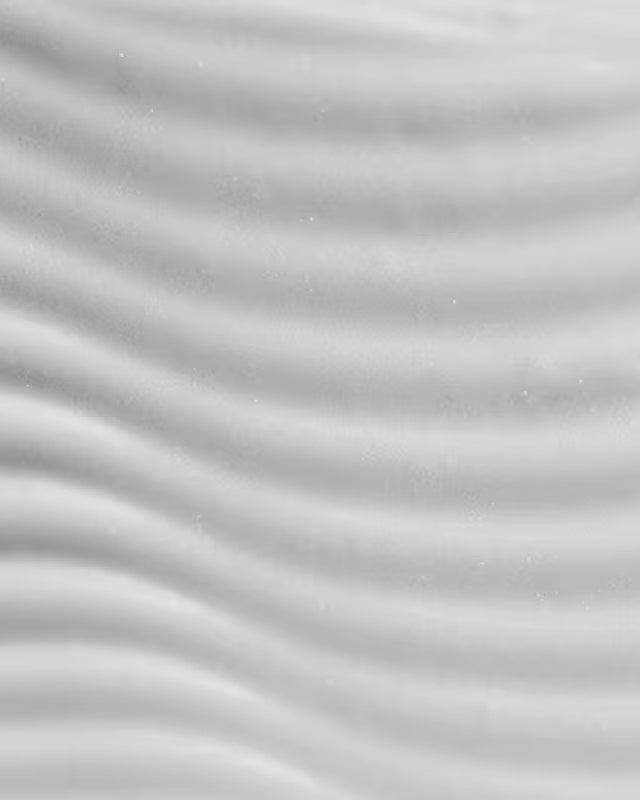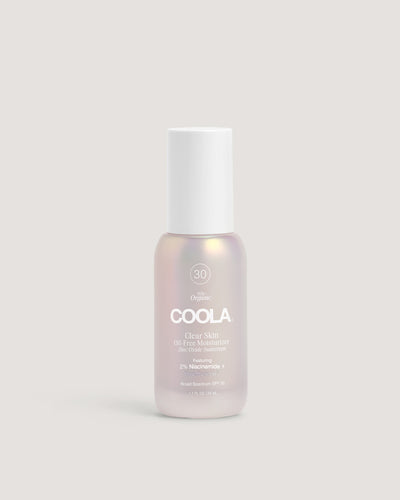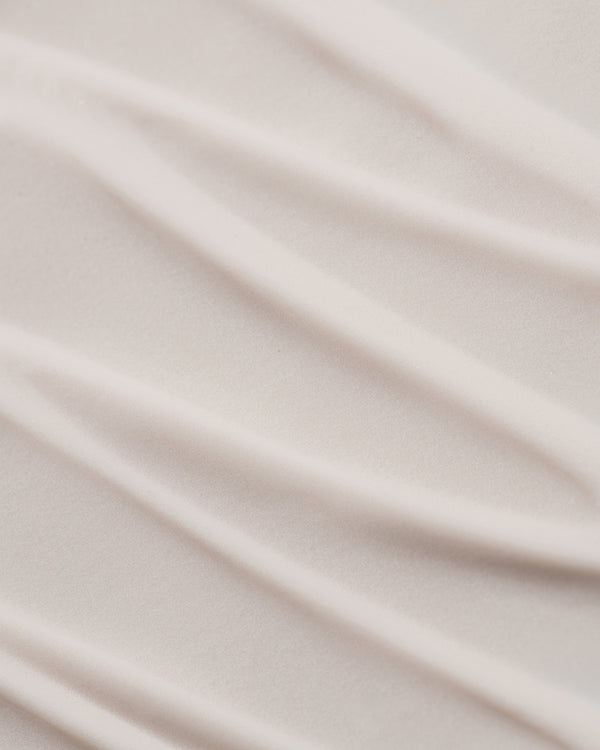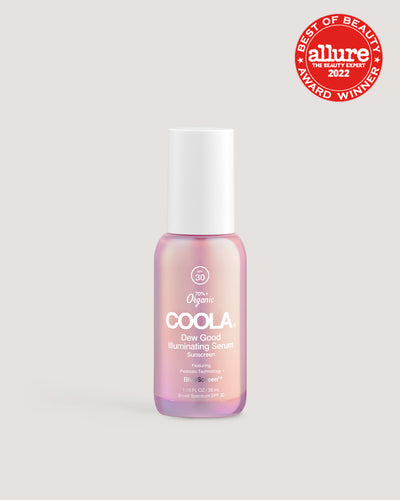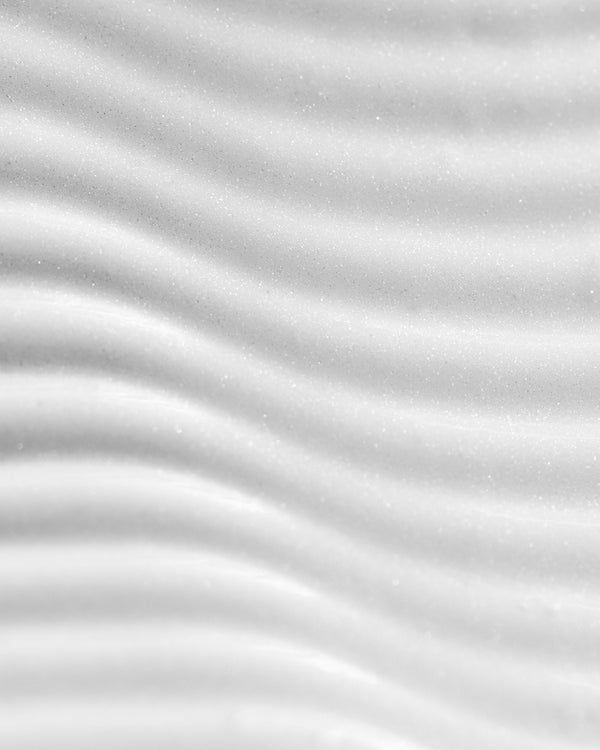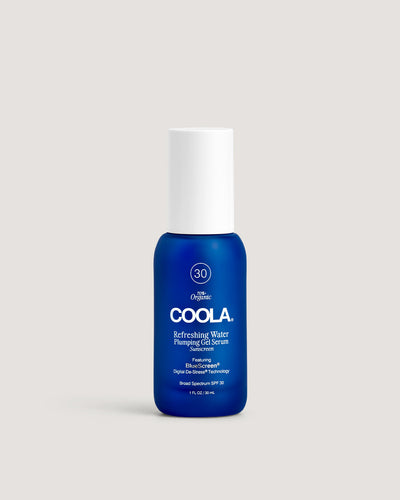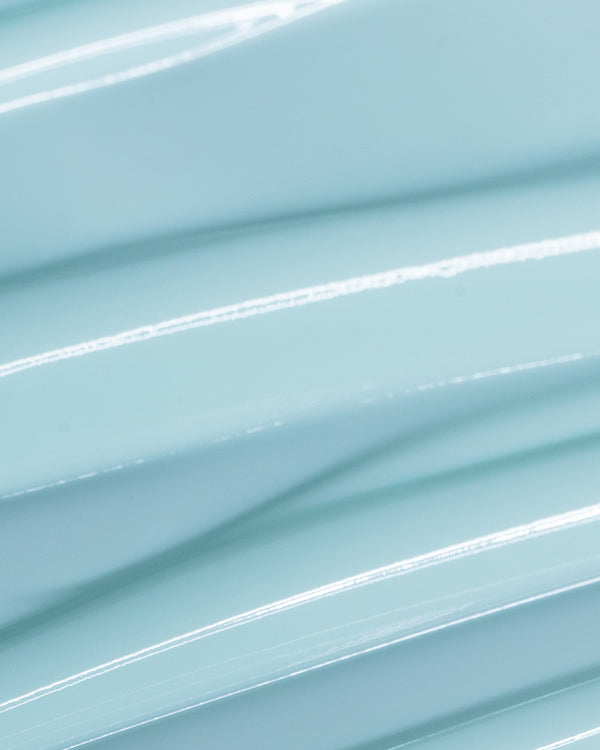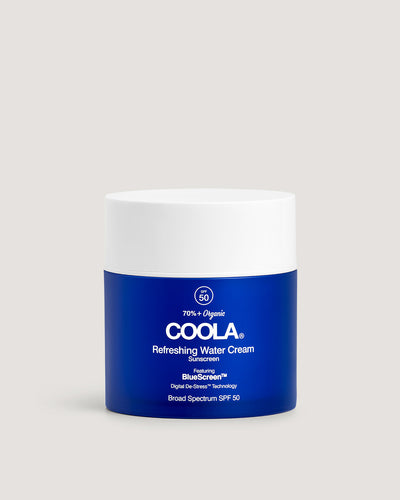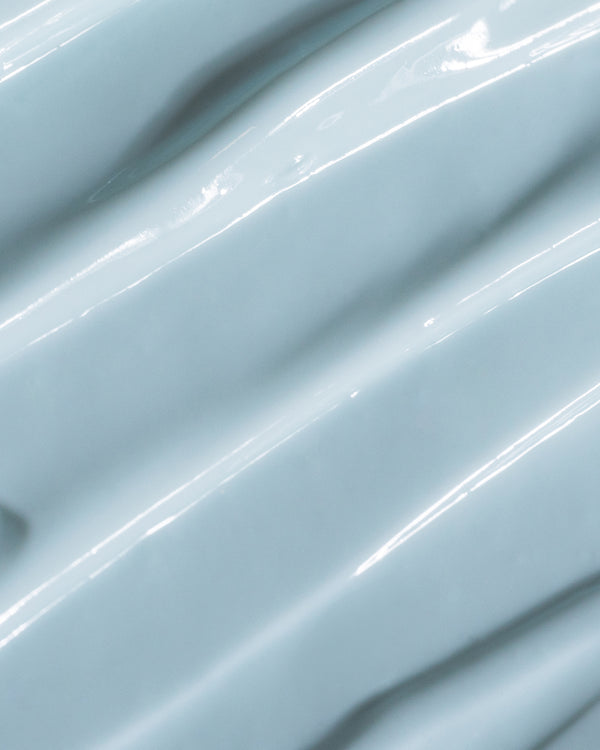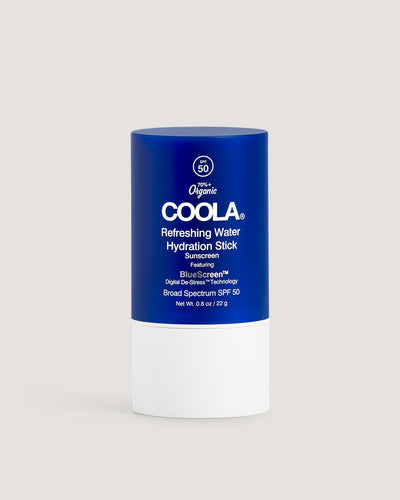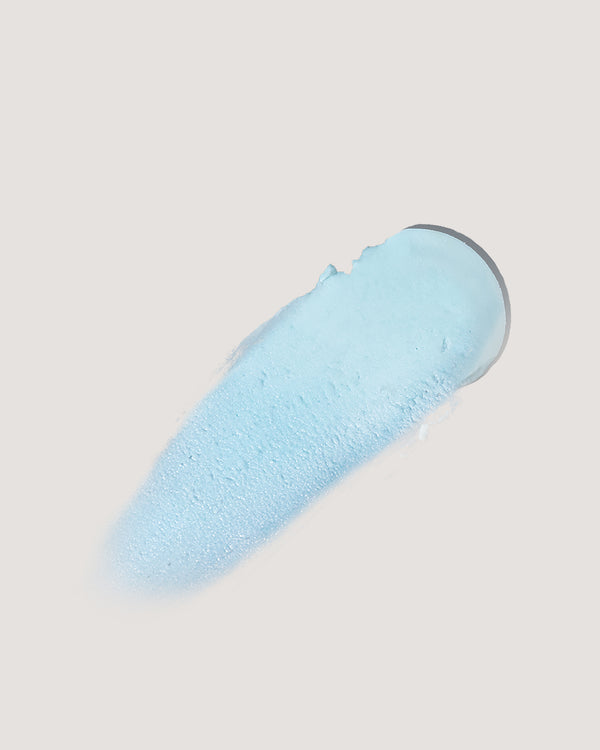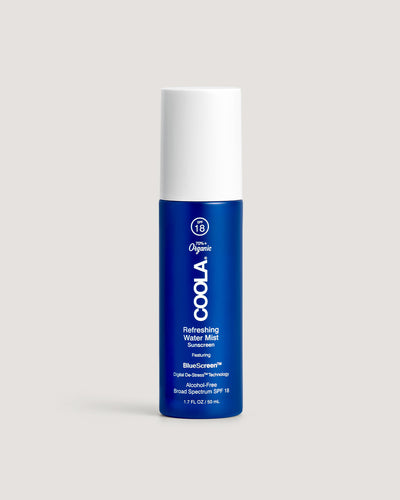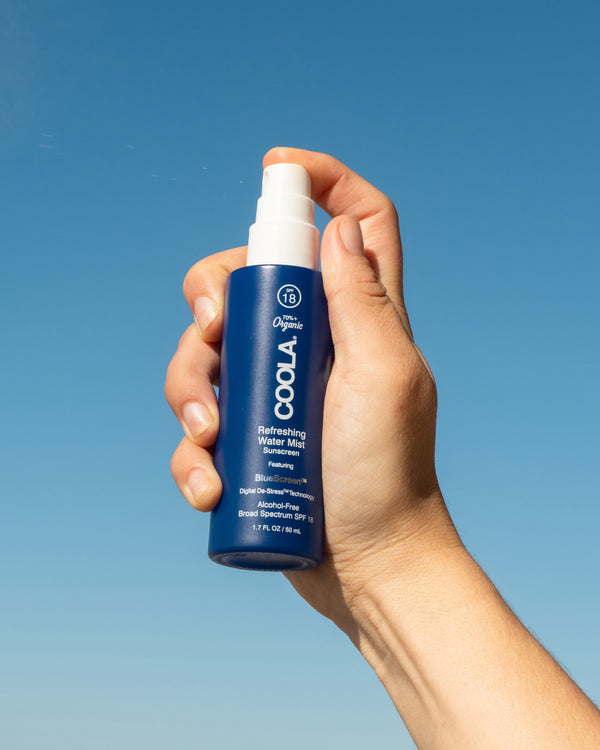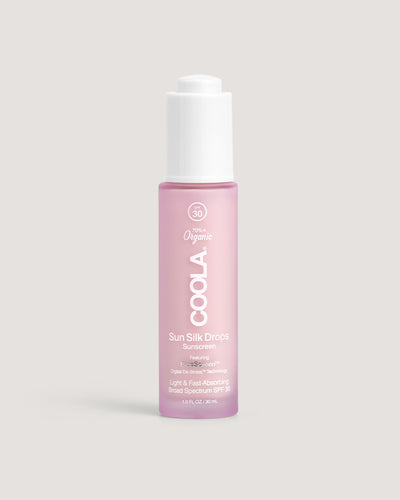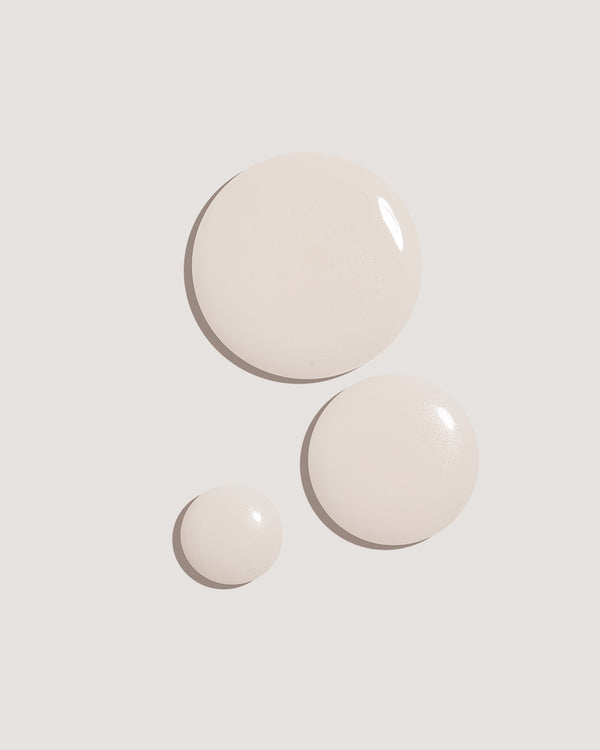
SPF Skincare
Skincare with SPF
Skincare should do more than hydrate. It should protect. COOLA’s SPF skincare collection is created for sensitive skin, featuring lightweight formulas that nourish, soothe, and provide broad-spectrum SPF protection.
Whether you want a radiant glow, a refreshing gel texture, or a sheer and silky finish, there is an SPF option for every skin need and moment. Try the Dew Good Illuminating Serum or a luminous finish, the Refreshing Water Gel SPF 30, for cooling hydration, or the Sun Silk Drops SPF 30 for a weightless and breathable application
Our SPF skincare blends smoothly into oily, dry, sensitive, and combination skin. Each formula is enriched with antioxidant-rich botanicals and is designed for daily wear. Whether you apply SPF as part of a simple morning routine or want lightweight protection that supports healthy-looking skin throughout the day, this collection offers solutions that feel good and perform well.


